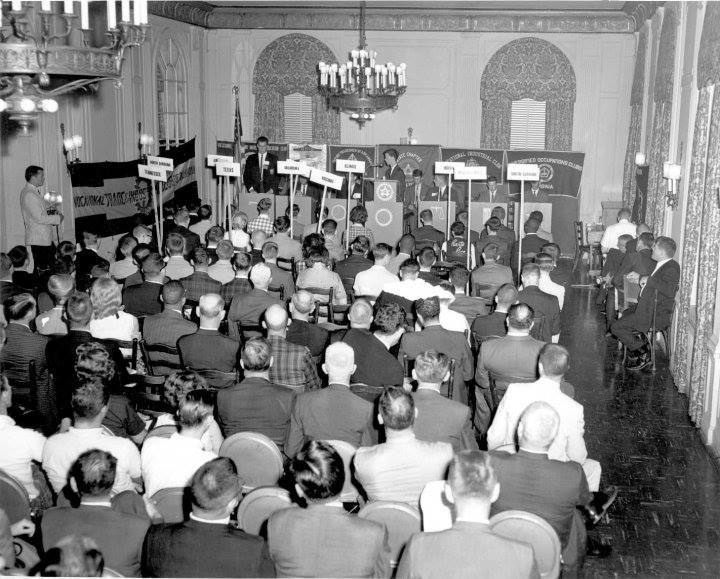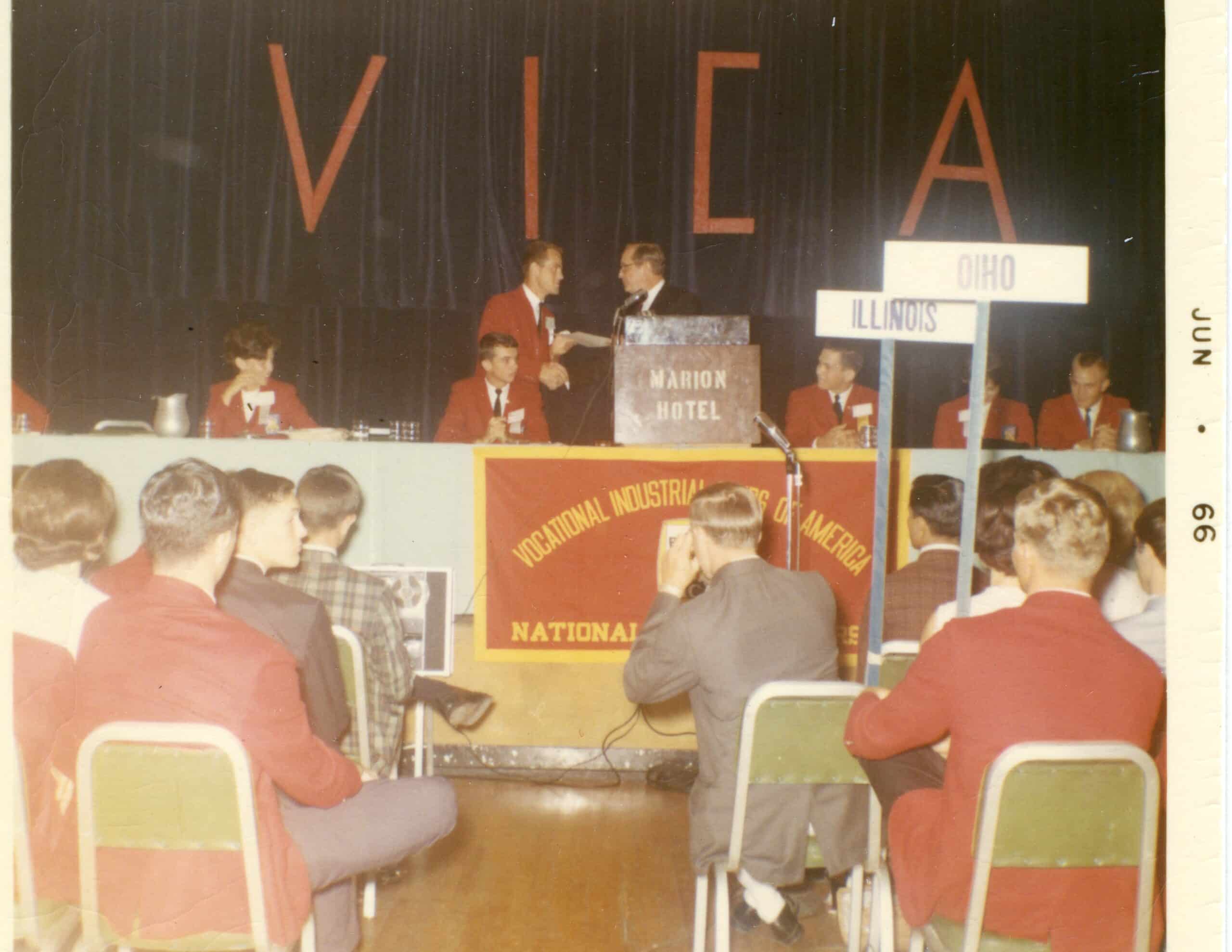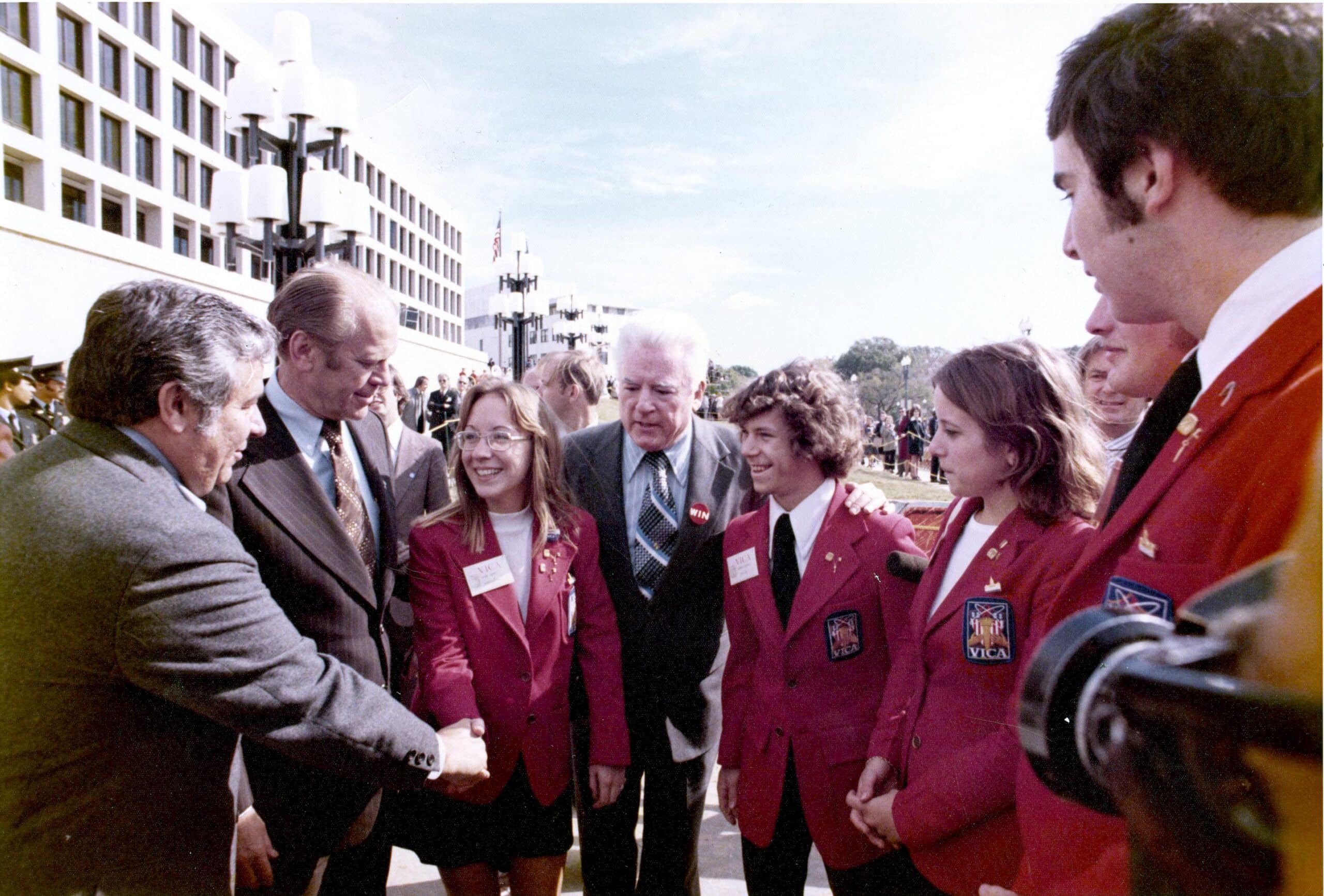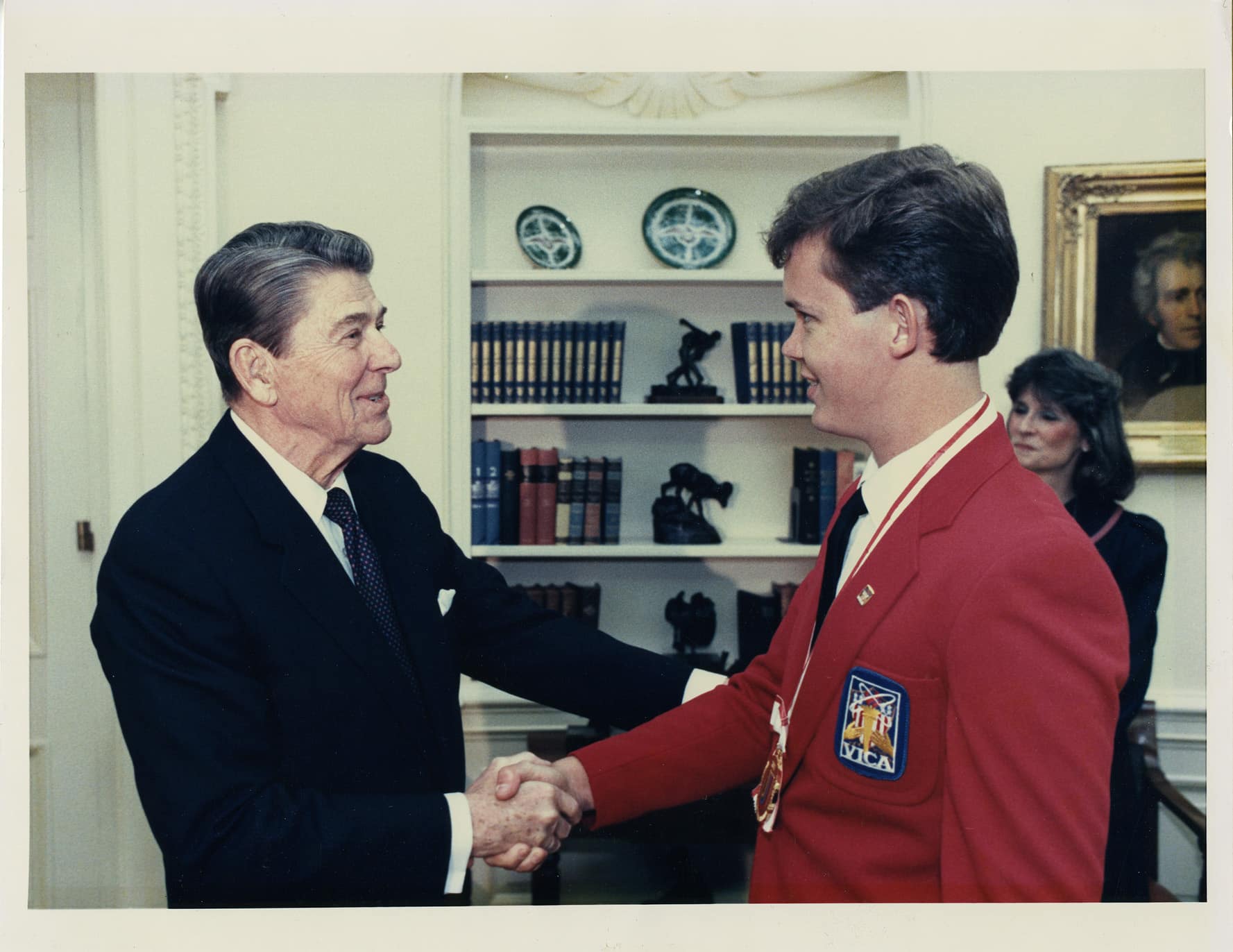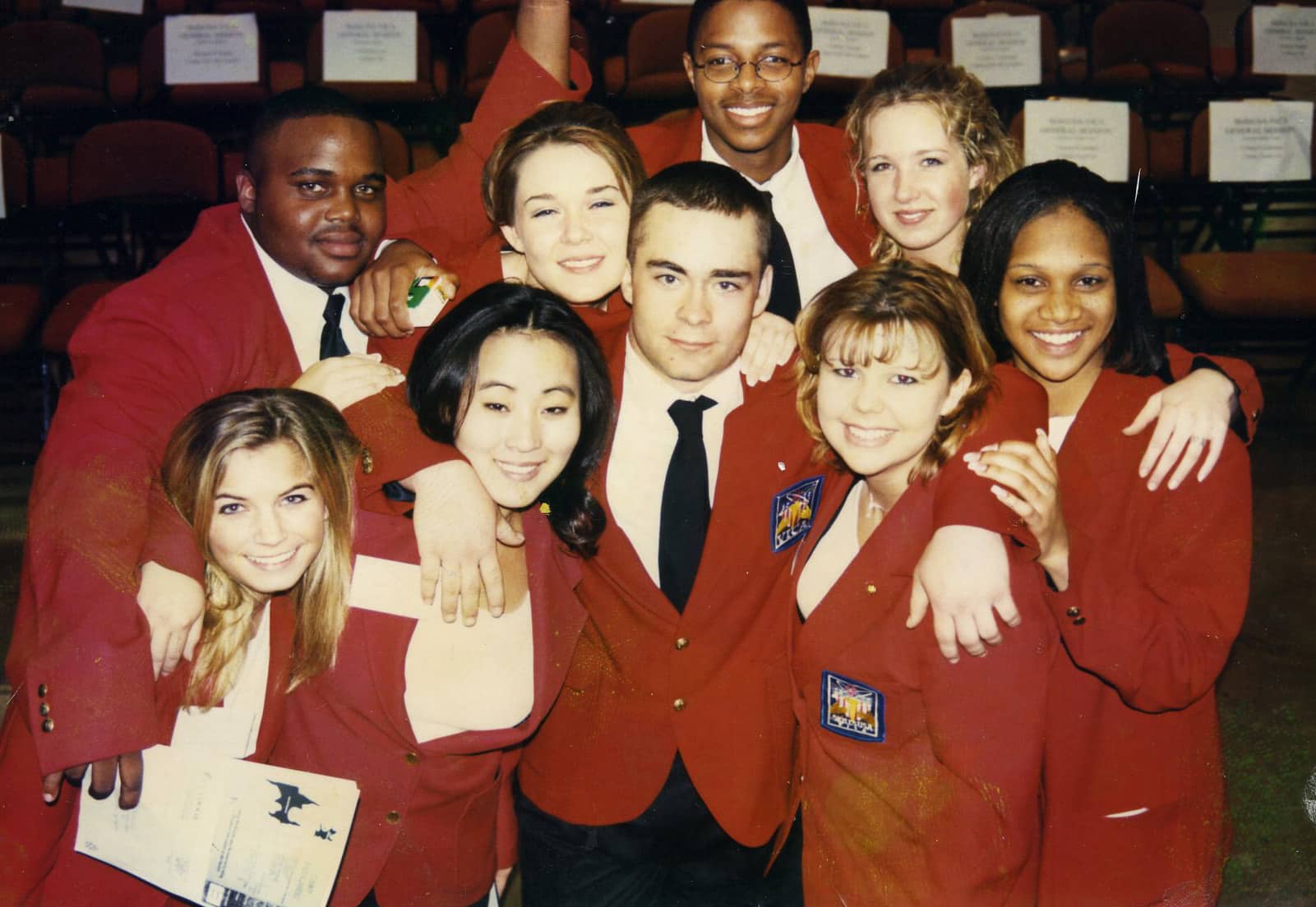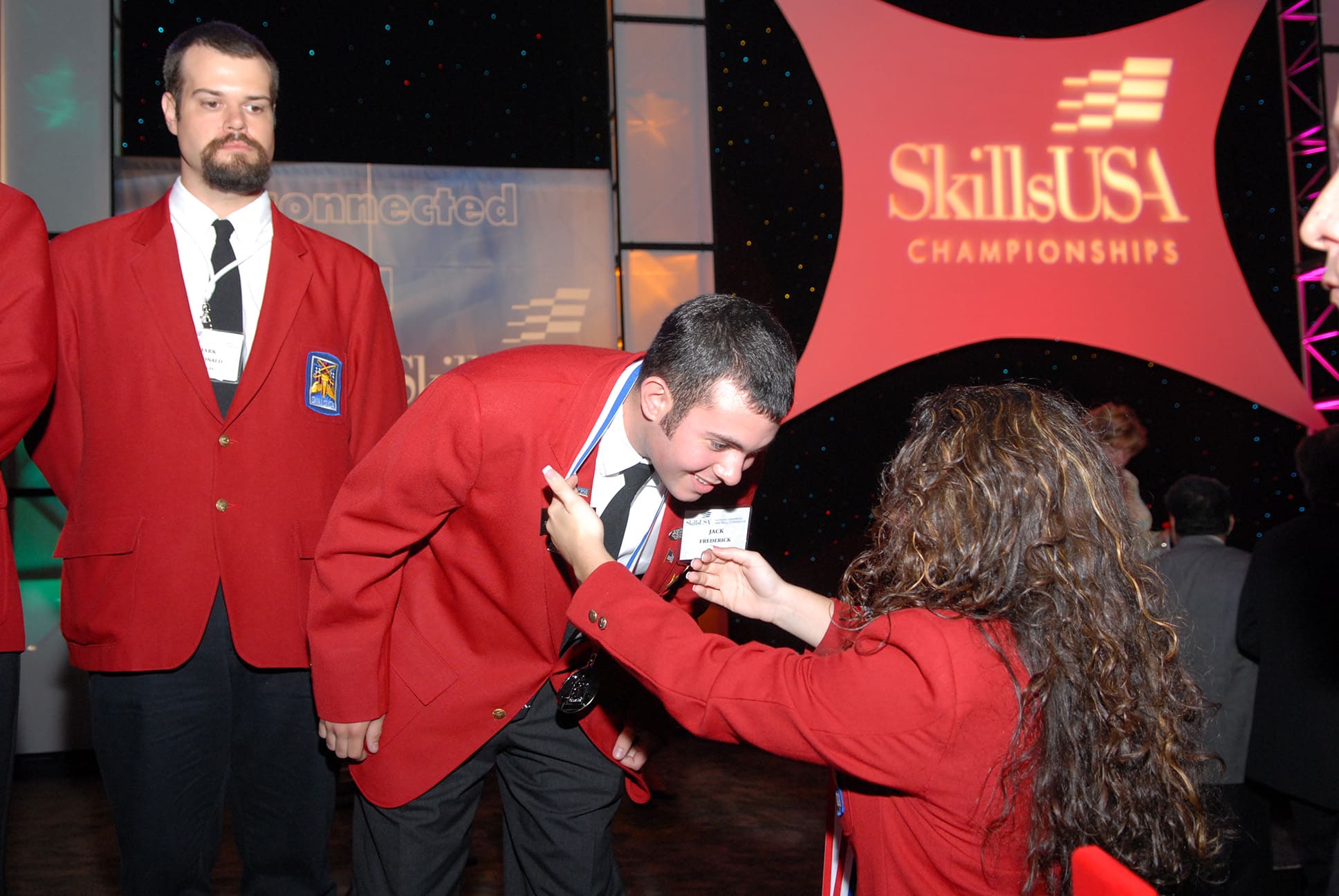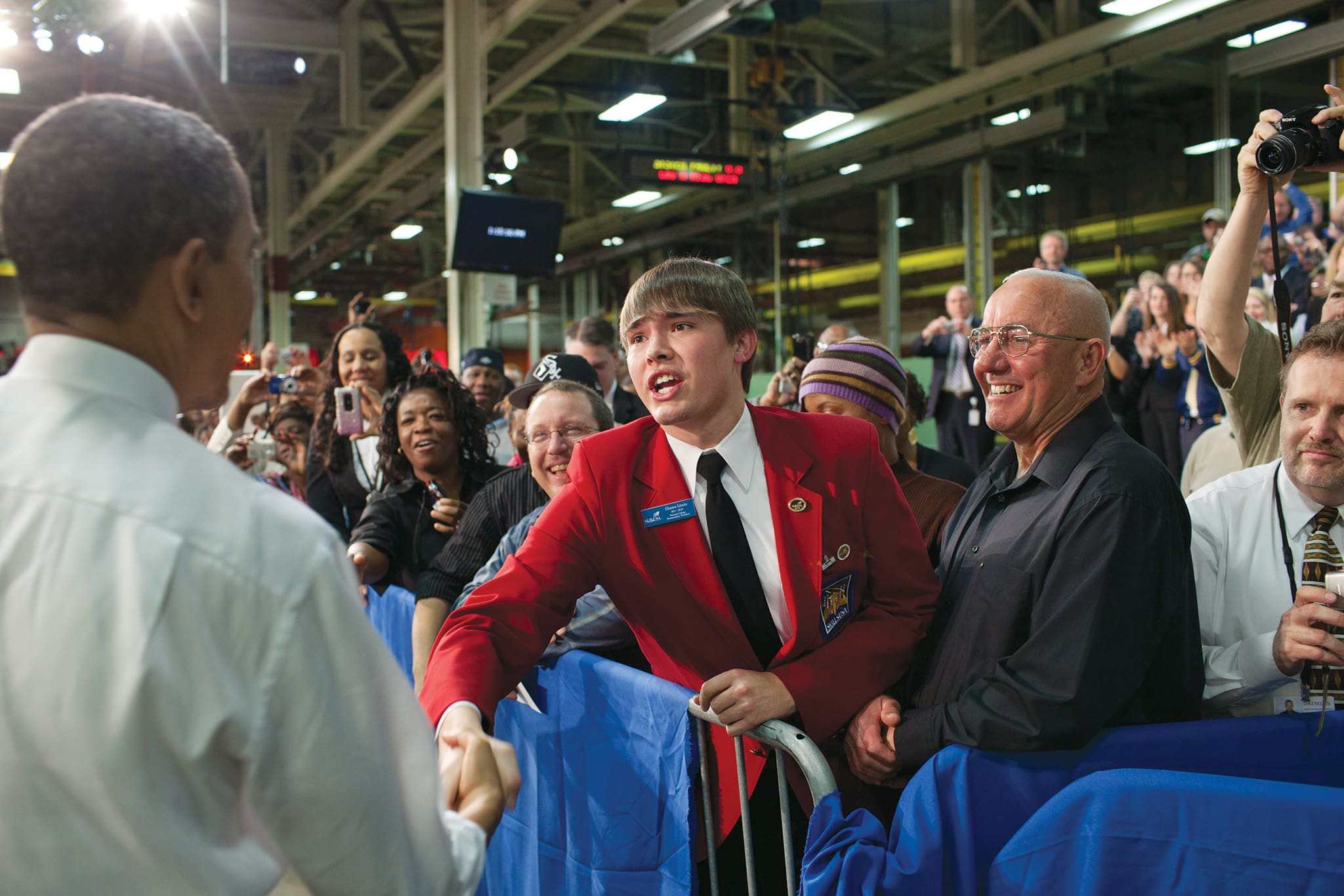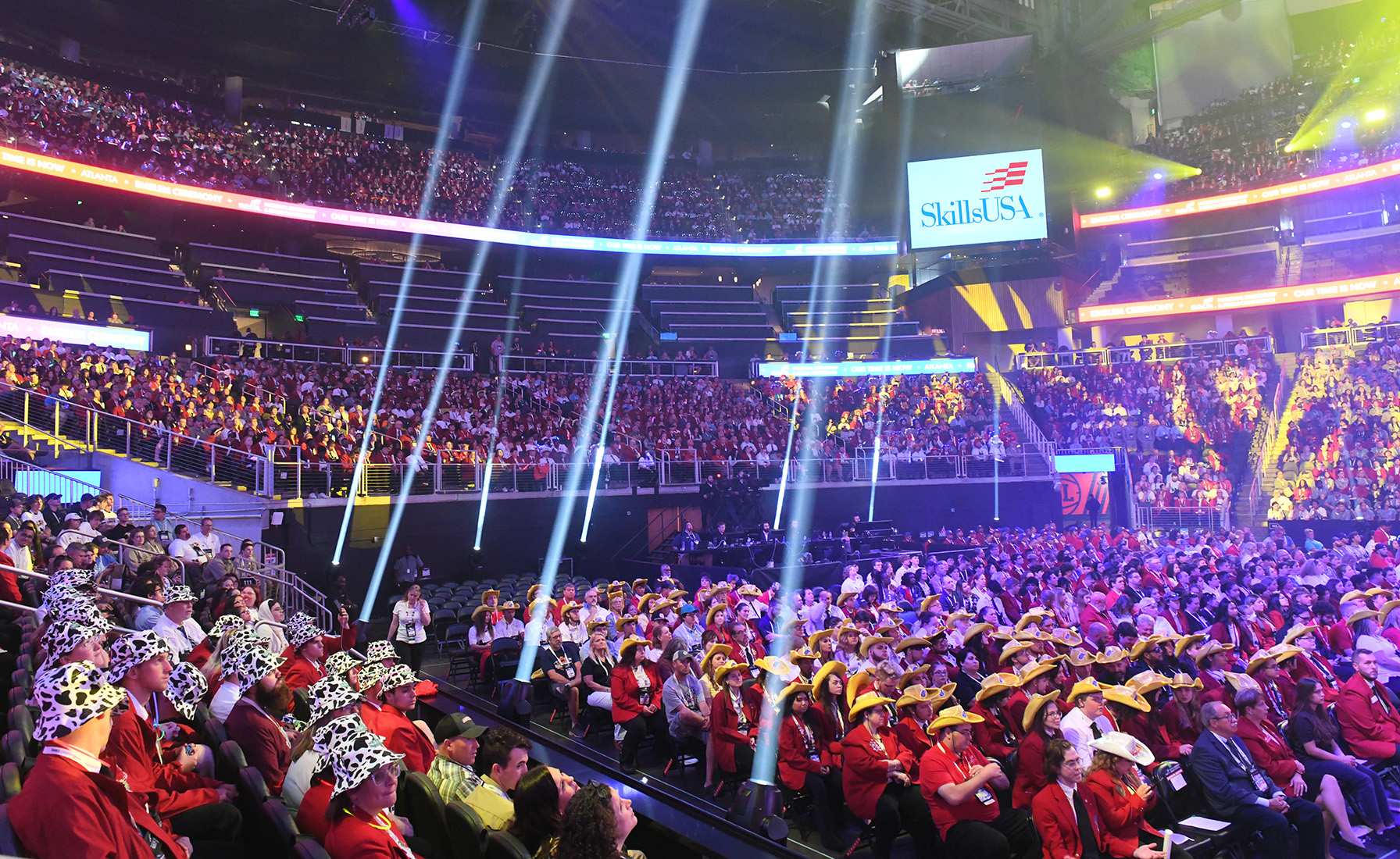The SkillsUSA legacy is rich with tradition, and while the organization was officially founded in 1965, the history of the skilled trades stretches back … almost indefinitely. In fact, skilled tradespeople have been passing down their abilities to “apprentices” since the earliest days of civilization.
We won’t go that far back, but we will start in 1917, when the first federal law in the United States relating to career and technical education was passed: The Smith-Hughes National Vocational Education Act. This law was the first to provide funding to the states for agriculture, homemaking and trade and industrial education. Forty-five years later, the Vocational Educational Act of 1963 specified that vocational student organizations were an essential part of vocational instruction. Today, these organizations are called career and technical student organizations, or CTSOs, and SkillsUSA is one of eight authorized by the U.S. Department of Education. This law was also important because it recognized CTSOs as an integral part of classroom instruction and legitimate recipients of federal and state grant money to support their work. And the rest is history. Our history.
History of our founding.
Before we became SkillsUSA in 2004, we were known as the Vocational Industrial Clubs of America, or “VICA” (pronounced “vick-uh”). In fact, the organization was founded as VICA in May of 1965 at the Trade and Industrial Youth Conference in Nashville, Tenn. Attendance? About 200 students, teachers and administrators, representing 14 states. There, members chose the organization’s colors, emblem, motto, purposes and goals, and our first of only four executive directors so far was named: Larry Johnson. The organization would be headquartered in Washington, D.C.
VICA in the 1960s.
VICA in the 1970s.
VICA in the 1980s.
VICA and SkillsUSA–VICA in the 1990s.
SkillsUSA in the 2000s.
SkillsUSA in the 2010s.
SkillsUSA in the 2020s.
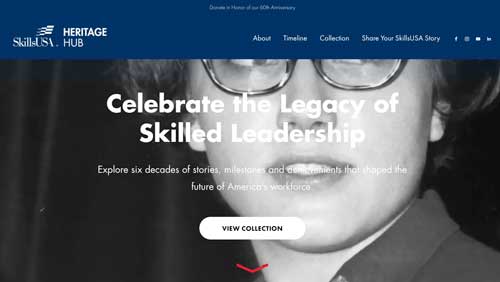 At SkillsUSA, we often say our greatest strength is our people — the students, educators, alumni and industry partners who’ve shaped this organization across generations. The Heritage Hub was created to honor that legacy. It’s more than a look back — it’s a way to connect our past to our future, and to ensure that the stories of our members continue to inspire tomorrow’s leaders.
At SkillsUSA, we often say our greatest strength is our people — the students, educators, alumni and industry partners who’ve shaped this organization across generations. The Heritage Hub was created to honor that legacy. It’s more than a look back — it’s a way to connect our past to our future, and to ensure that the stories of our members continue to inspire tomorrow’s leaders.
What will the rest of our story look like? Help us write it by joining or supporting us today!

The shield represents patriotism.
The shield denotes our belief in democracy, liberty and the American way of life.
The gear represents the industrial society.
The gear, symbolic of the industrial society, denotes the interdependence and cooperation of the individual working with labor and management for the betterment of mankind.
The torch represents knowledge.
The flaming torch reflects the light of knowledge, which dispels the darkness of ignorance. In the light of the torch, progress will be made toward the vocational goals of the individual.
The orbital circles represent technology.
The circles represent the challenge of modern technology and the training needed to accept and master the challenge of new technical frontiers and the need for continuous education.
The hands represent the individual.
The hands portray a search for knowledge and our desire to acquire a skill. In the process of attaining knowledge and skill, we will develop a respect for the dignity of work and become productive and responsible citizens.
Note: The emblem should not be used to represent the organization in marketing or publicity materials. Please use official SkillsUSA logos in those instances.
The colors red, white, blue and gold represent the national SkillsUSA organization.
Red and white represent the individual states and chapters.
Blue represents the common union of the states and of the chapters.
Gold represents the individual, the most important element of the organization.
Upon my honor, I pledge:
I believe in the dignity of work.
I hold that society has advanced to its present culture through the use of the worker’s hands and mind. I will maintain a feeling of humbleness for the knowledge and skills that I receive from professionals, and I will conduct myself with dignity in the work I do.
I believe in the American way of life.
I know our culture is the result of freedom of action and opportunities won by the founders of our American republic, and I will uphold their ideals.
I believe in education.
I will endeavor to make the best use of knowledge, skills and experience that I will learn in order that I may be a better worker in my chosen occupation and a better citizen in my community. To this end, I will continue my learning now and in the future.
I believe in fair play.
I will, through honesty and fair play, respect the rights of others. I will always conduct myself in the manner of the best professionals in my occupation and treat those with whom I work as I would like to be treated.
I believe satisfaction is achieved by good work.
I feel that compensation and personal satisfaction received for my work and services will be in proportion to my creative and productive ability.
I believe in high moral and spiritual standards.
I will endeavor to conduct myself in such a manner as to set an example for others by living a wholesome life and by fulfilling my responsibilities as a citizen of my community.
